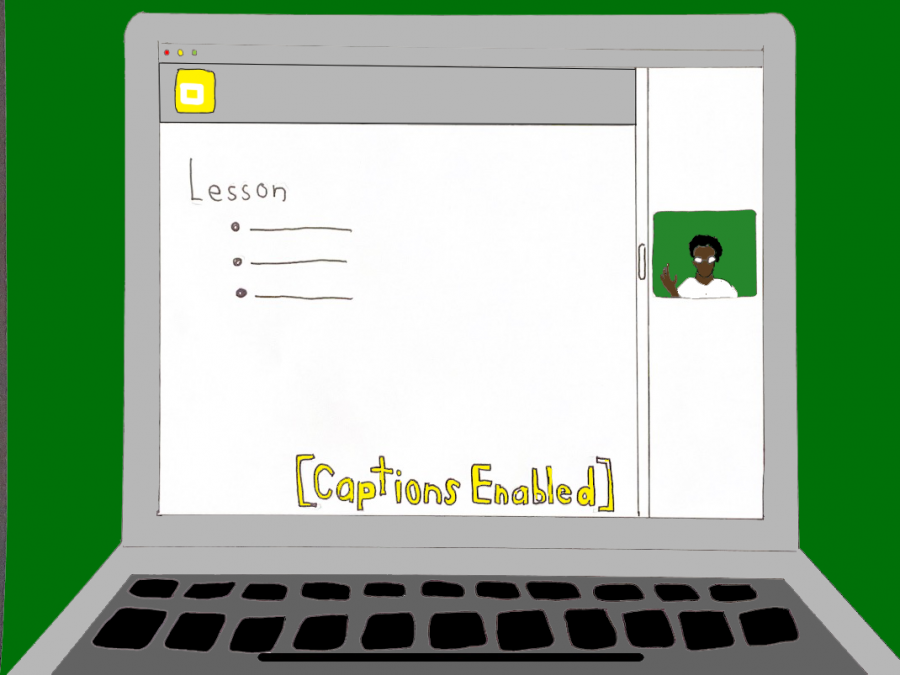Teachers enable captions to improve clarity, but challenges remain
Although an imperfect system, captions allow teachers to reach more learners.
February 1, 2021
Everyone knows that video conferencing through Zoom is not the same as talking and listening in person. Some teachers are taking advantage of the software to improve clarity and reach more learners by using captions and transcriptions of Zoom meetings for students with hearing issues or processing disorders.
The captions are implemented using the captions feature on Google Slides. Teachers may choose to activate this function while presenting a slideshow on Zoom. The transcriptions will be available to the presenter after the meeting in their University of Chicago Zoom page.
While using captions has not become widespread, history department chair Naadia Owens said that these captions have been helpful for students in her classes. Ms. Owens started using the captions last spring.
“This is something you can do to make sure that you are reaching all learners in your classroom including anyone who might have any trouble even watching a mouth on a screen,” Ms. Owens said.
Ms. Owens said that although the closed captions have been helpful, it is still an imperfect system. Captions are only available during screen sharing, and she noted that they would be helpful during class discussions among students.
Senior Sofia Woodruff has auditory processing disorder, which causes difficulties in processing slight distinctions between words and noises. She said that at the moment, the closed captions are not accurate enough to be useful, but receiving the transcript or presentation of the meeting may be.
“When teachers say very specific, important things like a due date or piece of information, that can be missed or misheard, and if it’s not posted on Schoology, a transcript would be pretty helpful,” Sofia said.
Closed captions were also used during the Martin Luther King Jr. Assembly Jan. 13.
“I think that anything that benefits kids is important. I would love to see kids advocating for this in their classroom,” Ms. Owens said, “I do wonder how many people know that you can do that, and I would love for that to be shared more widely with folks.”




























































